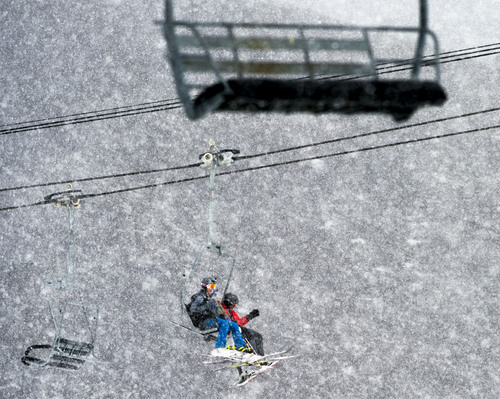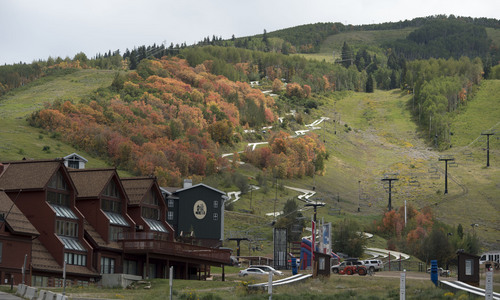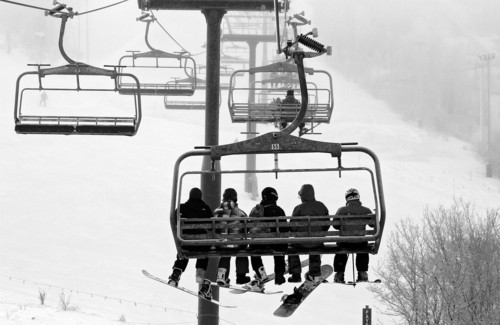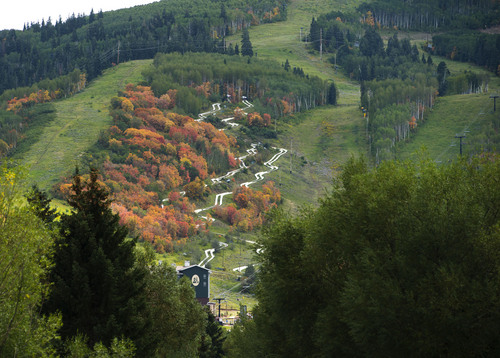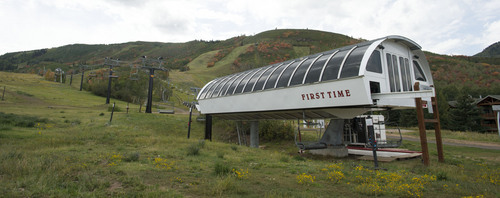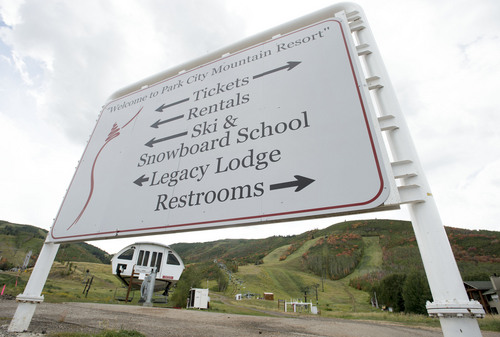This is an archived article that was published on sltrib.com in 2014, and information in the article may be outdated. It is provided only for personal research purposes and may not be reprinted.
Besides expressing relief that the big resort fight was over, ski industry officials in and outside of Utah were loath to say much Thursday about the ramifications of Vail Resorts buying Park City Mountain Resort (PCMR).
Most declined to comment or did not return telephone calls or emails. Those who were willing to say something were cautious.
As Solitude Mountain Resort owner David DeSeelhorst put it: "The landscape has definitely changed, [but] I haven't really had time to digest it."
What he and others are contemplating now is a Utah ski industry that has gone from being 14 individual entities with distinct personalities to something more akin to Vail and the 12 dwarfs.
With control of two-thirds of the lucrative destination-skier market in Park City, which probably accounts for close to half of Utah's 4 million annual skier visits, Vail Resorts clearly has become the market's dominant force.
That certainly could be good for Utah skiing, given Vail's worldwide marketing capabilities. As soon as the $182.5 million purchase was announced Thursday, the website for Vail's affordable Epic Pass heralded PCMR's inclusion in the package in big bold lettering.
"We don't release specific data on our marketing campaigns," said Vail Resorts spokeswoman Kelly Ladyga, "but the response was immediately positive with significant traffic to our website."
But there's also concern, not expressed for the record, that over time Vail could use its pre-eminent position to bully the others into following its lead even if that's not best for the resorts or local skiers.
Deer Valley General Manager Bob Wheaton said he isn't concerned about such a dynamic. "We have worked well with Vail in the past and look forward to working well with them in the future," he said, adding that people will have all sorts of opinions about the merits of Vail's influence.
"But one thing there is no debate on," he said, "is that the uncertainty and the indecision [about PCMR] has not been good. Now there is a conclusion and we can all go forward. And there's a lot of horsepower there with Vail. With their reach literally worldwide, that's a good thing. Exposure is never bad."
Since both Vail and former PCMR owner Powdr Corp. are both part of his marketing organization, Ski Utah President Nathan Rafferty carefully chose his words in discussing Thursday's developments.
"There's a lot of excitement about what could happen and what Vail Resorts brings to the table in terms of infrastructure improvements and marketing," he said. "From the 30,000-foot level, I would have to imagine our skier days will take a sharper upward trend than they've been on already."
At the same time, Rafferty said he was pleased that people who made PCMR such a key presence in Utah's industry — from the owners at Powdr Corp. to the employees led by PCMR General Manager and Ski Utah chairwoman Jenni Smith — will remain active in Utah's ski scene.
"We're elated that the Snowbird deal happened earlier this year," he said, referring to Powdr Corp. executive Ian Cumming's purchase of majority interest in the Little Cottonwood Canyon resort in May. "The Cumming family that has been so good to the Utah industry will still be a player."
Rafferty also said he is optimistic Vail Resorts will carry on a Utah ski-industry tradition of everyone being team players, noting that two of Vail's top executives — Mike Goar and Blaise Carrig — have lengthy ties to the Beehive State and are former board chairmen of Ski Utah.
"Those two have a really good feel of how we play so well together," he said. "They know the advantages of that and will work not to disrupt that."
Most of all, said Ralf Garrison, a consultant who studies visitation in destination ski markets across the West, putting the attention-grabbing litigation to rest is invaluable to the runup to the coming winter.
"This story has been like a soap opera, where an unfortunate error became strategic, creating a very awkward situation," he said of PCMR's lapsed lease and potential eviction by Vail and Talisker Land Holdings.
"While conflicts of egos, and carrots and sticks have abounded, both parties should be commended for finding an acceptable outcome for the good of the greater Park City community as well as its consumer base," Garrison added.
And, he pointed out, Wall Street investors liked it.
Vail Resort's stock rose 11.7 percent Thursday, climbing 8.98 points to close at a post-recession high of 85.75.


